Olusola Akanmode: Salute to a rare bureaucrat and community-minded patriot at 71
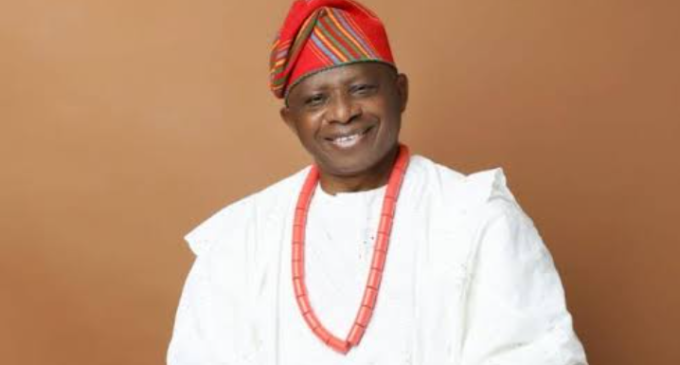
If you didn’t know him in his days as a high flying bureaucrat in the Old Kwara State, either by way of a physical encounter, or perhaps you gleaned his face in the media, you probably encountered him in high end social circles in Ilorin, capital of the state. He was at various times a Permanent Secretary or Director-General, depending on the nomenclatural preference of the federal bureaucracy which set the pace for the states, under military rulership.
He served nearly half a dozen military governors at the time and also established *The Niche Club* a classy hangout for select middle class patrons in Ilorin, capital of the state. *The Niche* was located in the serene Adewole Housing Estate, away from the stomp and shove of the city centre, an idyllic hub for winding down after work hours or networking.
To be sure, between January 1984 and August 1991, he served in the administrations of Salaudeen Latinwo, Mohammed Ndatsu Umaru (both air force group captains) and Ahmed Abdullahi; Ibrahim Alkali and Alwali Jauji Kazir, respectively, (all army colonels), who were all military governors between the regimes of Muhammadu Buhari and Ibrahim Badamasi Babangida, as the nation’s military helmsmen. He functioned at various times in different ministries, departments and agencies, (MDAs), notably Finance, Health, Governor’s Office and Office of the Head of Service. He equally served in Education, Government House as well as Commerce and Industry.
His work ethic, circumscribed by unwavering commitment, focus, hard work, diligence and versatility, earned him something of a magical ascendancy in the public service. He became a Permanent Secretary, within 13 breathtaking years, at the age of 37. Reaching the peak of the civil service at that level, is statutorily attained either before 35 years in service, or ahead of the 60th birthday of a civil servant. He was also one of pioneering public servants in the newborn Kogi State, created by Babangida August 27,1991, following the excision of parts of the erstwhile Benue and Kwara states, to constitute the present day Confluence State.
In the new creation, he served as premier Permanent Secretary in an omnibus Ministry of Works, Water Resources, Lands and Housing, under the four-month foundation-laying regime of Danladi Mohammed Zakari, also an army colonel, in the state. He worked with Zakari to articulate a framework for the takeoff of the new state, which was to be driven by the brimming quality and abundance of manpower in the state. It was expected that the state will take full advantage of its geophysical location at the intersection of Nigeria’s two largest rivers, the Niger and Benue in Lokoja, capital of the new state; its touristic endowments as a Lord Lugard era capital of Nigeria; its multiplicity of solid minerals which had already bred the Ajaokuta Steel Complex; its abutment with nine states and the federal capital territory and its immense agricultural potentials.
Olusola Akanmode, better known in the national space, since the outset of democratic governance in 1999, when he served as Chief of Staff, COS, to Vice President, Atiku Abubakar, had a longserving, fulfilled and inspiring career in the public service. He had been properly groomed for challenges and tasks which he encountered in his latter years in the service to the nation. Back in 1993, shortly after the ouster of the regime of Ernest Shonekan, Head of the Interim National Government (ING), put in place by Babangida, Akanmode was recalled from retirement to serve as Secretary to the State Government, SSG, in Kogi State.
The dodgy, hurriedly cobbled together ING contraption, was Babangida’s way of availing himself a soft landing in the boiling political conundrum of the nation at the time. This followed strident agitations by Nigerians and the international community, after Babangida annulled the “June 12, 1993” election, won by the business mogul, Moshood Kasimawo Olawale Abiola, hailed as *MKO* for short, in the national political arena. The clamour centred around the imperative of the restoration Abiola’s mandate.
Sani Abacha, himself an army general and Babangida’s confidant, kicked out Ernest Shonekan and the democratically elected governors and parliaments in November 1993, and appointed military administrators in place of the civilian governors. Paul Uzoanya Ndimele Omeruo, then an army colonel from the artillery corps of the Nigerian Army, was appointed chief executive of Kogi State. Akanmode thus became the de facto Number Two man in the administration, in the absence of a deputy governor, military or civilian.
One of the highlights of his stint in office under Omeruo, was the launch of a Kogi State Industrial Trust Fund, to create awareness about, and raise resources for the industrial takeoff of the state, a desire which could not be totally borne by the state government, in the days of trickling monthly allocations to state governments, from the federal purse, with the states contending with debt overhangs and workers’ emoluments. The programme, coordinated by his office as SSG, recorded some level of success. But as with many brilliant initiatives powered by government, the idea petered out, soon after the exit of the Omeruo administration.
Under the military, the functions of the COS in the office of the Number Two man in a federal setup, the Chief of General Staff, CGS, were overseen by a high ranking military officer, not below the rank of Brigadier General, (or its equivalent in the other arms of the military). He was referred to as Principal Staff Officer, (PSO). It was therefore the responsibility of Akanmode and his colleagues in the office of the President, Olusegun Obasanjo, to demilitarise and domesticate the office to conform with the needs of a democratic dispensation.
Much as he served predominantly under military leaders, Akanmode had substantial experience in grassroots politics and popular mobilisation. Following his exit from the Omeruo administration in the first half of 1995, he spent quality time in his community and homeland in the Okun country, availing himself of better understanding and appreciation of his people. He was one of the initiators of the “Okun New Initiative,” (ONI), an apolitical sociocultural assemblage of select Okun leaders, including Jide Omokore, Funso Owoyemi, Olu Owa and so on, to chart a new political direction for Okunland, serially victimised in the political scheme, under various political arrangements.
A protege of the revered Okun bureaucrat and leader, Sunday Bolorunduro Awoniyi, Akanmode was involved in the Abacha era politicking which produced five political parties. This included: Convention for National Consensus (CNC); United Nigeria Peoples’ Convention, UNCP; National Centre Party of Nigeria (NCPN); Democratic Party of Nigeria (DPN) and Grassroots Democratic Movement (GDM) registered by the National Electoral Commission, (NECON) in September 1996.
The UNCP was the dominant party in that milieu and Akanmode, alongside Awoniyi, David Medaiyese Jemibewon, Jonathan Tunde Ogbeha, Ado Shuaibu, Stephen Olorunfemi and others, rallied the electorate in the senatorial zone, behind the UNCP. The UNCP dissolved into the Peoples’ Democratic Party, PDP, following the emergence of Abdulsalam Abubakar as military Head of State in June 1998, after the demise of Sani Abacha. The PDP was one of the three political parties registered by the successor electoral umpire to NECON, the Independent National Electoral Commission, (INEC). The other two parties were the All Nigeria Peoples’ Party (ANPP) and the Alliance for Democracy (AD).
Akanmode’s polyvalent experiences over time, came very handy in the organisation and operationalisation of the Vice President’s office. There was very regular interface between the Vice President, and his principal officers, to keep them up to speed with government’s intentions, initiatives, policies and plans. Akanmode deftly navigated the intricate relationship between the two top shots, especially against the backdrop of the peculiarity of his designation as Deputy Chief of Staff to the President, in the Office of the Vice President. This curious complexion of his job, implied that he was first and foremost an appointee of the President, before his deployment to the Office of the Vice President. This was definitely a different scenario from what obtained elsewhere, especially in the United States of America (USA), whose presidential democracy Nigeria copied, and had to be carefully managed.
Quietly and unobtrusively, Akanmode worked behind the scenes to help mitigate the emasculation of Kogi West Senatorial Zone in the national scheme, those early years of popular rule. With the governor of Kogi State coming from Kogi East and his Deputy from Kogi Central, between 1999 and 2012, the highest ranking political office holder from Kogi West during the Obasanjo years, therefore, was the Speaker of the House of Assembly. Expectedly, he wielded minimal influence in the political scheme of the state. Elected and appointed public officers in the Obasanjo government from Kogi State, met regularly and synergised to ensure that the state was not undermined with regards to the appropriation of dividends of democracy by way of appointments and infrastructural projects.
Differences between Obasanjo and Atiku in the aftermath of the 2003 presidential election, culminated in the wholesale decimation of the office of the Number Two citizen, whose staff were wilfully sacked by Obasanjo. Akanmode resigned his appointment in December 2006, in solidarity with his Principal. So bitter was the acrimony between both leaders, that Akanmode was denied the national honour automatically due to him by virtue of his appointment and contributions to the Obasanjo regime, a development which he reflects on, from time to time.
Akanmode returned to his birthplace, Aiyetoro-Gbedde in Ijumu local government area after his disengagement from the Obasanjo government, to pursue his passion in agriculture and the development of cottage industries. As at 2018, his farm spanned 350 hectares of high yield cassava, while a small plant which he operated, produced *garri* in cellophane packages. The heightened activities of rampaging herdsmen, however, have ensured that he has suspended his farming activities for a while. The losses he suffered following the discontinuation of his pet project remains a profound source of unhappiness for him.
A prince from the Akanmode royal family in Aiyetoro-Gbedde, Olusola Akanmode was born August 18, 1950. He attended what was then known as the Provincial Secondary School, Okene, beginning from 1963. He proceeded to lead his class in the University of Cambridge-moderated Higher School Certificate Examination, HSC and was admitted to study French at the nation’s premier university, the University of Ibadan, between 1970 and 1974. After the mandatory one-year National Youth Service Corps (NYSC) he joined the civil service of the Old Kwara State, in 1975. He opted for the civil service, even when he had an opportunity to pursue a career in the academia, following the advice of his childhood friend, Samuel Adedoyin and he has not looked back ever since. He obtained a masters degree in public administration, on the job, to consummate his lifelong career in the public space.
In 2011, he staked a claim to the leadership of Kogi State, participating in the primaries the the PDP. That was a golden opportunity for Kogi West to clinch the ticket of the party for the election. Unfortunately, the zone literally went to battle with too many commanders. With over half a dozen aspirants from Kogi West, the plausibility of block delegate votes for one candidate, was frittered. Much as he didn’t make it on that occasion, Akanmode as a loyal party man, supported the candidature of Idris Ichalla Wada, who emerged PDP flagbearer, after a repeat primary, later that year. He was on the Professor Francis Idachaba-led committee which articulated a blueprint for the development of the state, under Wada and continued to support the administration in several ways. Akanmode had also been a resource advisor to the administration of Olusegun Mimiko, when the latter was governor of Ondo State.
Akanmode has been serially misunderstood as arrogant and standoffish in some circles, ascriptions which cannot be empirically substantiated, given the mass respect and acceptance he enjoys in the political firmament in Kogi. Back home, his political alias is “The Bridge,” a corroboration of his exertions and investment in rallying people across the state together. Truth, though, is that he has minimum tolerance for people of contestable intellectual constitution, fringe characters and freestyle laggards, who cannot add value in any way. He chooses his friends and associates, from a broad spectrum of his immediate constituency and beyond, and they are usually people he holds in high esteem.
He is extremely witty, by the way, but he is careful to choose his audience at every turn, so he is not misconstrued. In the course of a meeting of leaders from Kogi West chaired by Jemibewon for instance, the mobile phone of the General rang, even when he thought it was on the silent mode. The ring tone was a popular disco tune, even as the octogenarian tried to regulate the phone. Akanmode didn’t spare the opportunity to take a jibe at the senior citizen. “General,” he said, “This ring tone is too funky for an old man,” which drew laughter from the audience.
Back home in Okunland especially during festivities, Akanmode is your quintessential host. He throws his bar and kitchen wide open for his guests, usually visiting Okun kinsmen from various parts of the country and home folks, in archetypal Okun fellowship and camaraderie. This is usually characterised by handshakes, laughter, backslaps, hugs, general bonhomie and teasing jokes, in variants of our mother tongue, as people catch up with issues and happenings, enjoying the rejuvenating breeze of the countryside.
The commemoration of his 70th birthday last year, attracted dignitaries like Jemibewon and his wife, Dupe; former Kogi State governor Wada; former Senator representing Kogi West, Dino Melaye; National Publicity Secretary of the PDP Kola Ologbondiyan; former General Manager Corporate Communications of the Federal Housing Authority (FHA) Tunde Ipinmisho, Richard Olonisua of the Assets Management Corporation of Nigeria, (AMCON), among others.
At the event, Akanmode the celebrant didn’t miss the opportunity to send his guests into laughter, when Dino Melaye opened a bottle of champagne and served him, before the toast was proposed in his honour. “I hope everyone is watching,” Akanmode said. “This celebrant is being served by a Senator, a whole Senator of the Federal Republic of Nigeria. It’s not easy to get here, you know,” which drew guffaws from guests at the event. Akanmode indeed told a reporter who interviewed him on the occasion, that he “didn’t feel like 70.”
President Muhammadu Buhari congratulated Akanmode on that landmark, saluting him for being “a distinguished public servant who served on many committees and special task forces, at state and federal levels,” as part of his contributions to aggregate national development. Former Vice President Atiku Abubakar equally celebrated Akanmode as “a brilliant individual with exceptional skills at achieving success in his endeavours, an asset to Nigeria and a leader who has paid his dues towards the growth of our fatherland.” The Ooni of Ife, Adeyeye Enitan Ogunwusi and Akanmode’s former boss in Kwara State, General Alwali Kazir equally felicitated with him on the milestone.
Akanmode was a delegate representing Kogi State at the 2014 National Conference initiated by the administration of President Goodluck Jonathan, to dilate issues of national concern, build a consensus and chart a new sociopolitical trajectory for the nation. The conference was applauded as being a success, as it was very representative of our multilevel diversities and tendencies, as a people and a nation. Unfortunately, despite unanimous consent about the prospects of the report of the conference in addressing the national question, the Buhari milieu has left the document to accumulate dust and cobwebs in bookshelves of the establishment.
And don’t be surprised if you find Prince Akanmode caressing the most up-to-date electronic appliances. He is an irrepressible “gadgets freak,” for your information. If you haven’t seen the most recent version of an I-Phone, a *Bose or Bang and Olusfen* compact music player or similar device, you are most likely to find them with him. He remains very up to date with trends and events, despite being a septuagenarian now. I once joked with him that he needs to resuscitate the age old concept of *The Niche* here in Abuja, assuring him that we his younger ones will graciously concede the deejay’s position to him! He loves good music and playing with his grandchildren.
Tunde Olusunle (PhD) is a member of the Association of Communication Scholars and Practitioners of Nigeria (ACSPN).
Views expressed by contributors are strictly personal and not of TheCable.

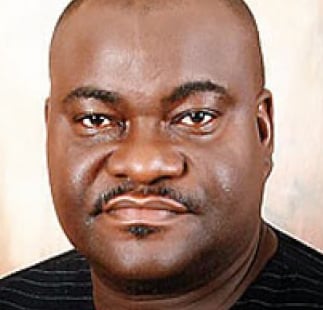


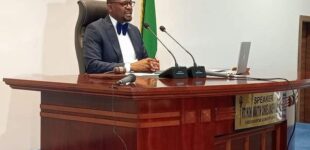
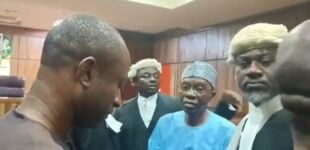
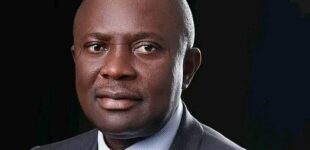
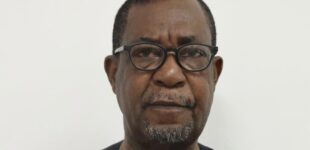

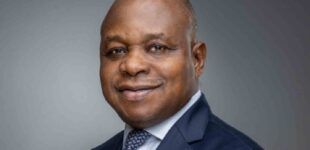



There are no comments at the moment, do you want to add one?
Write a comment